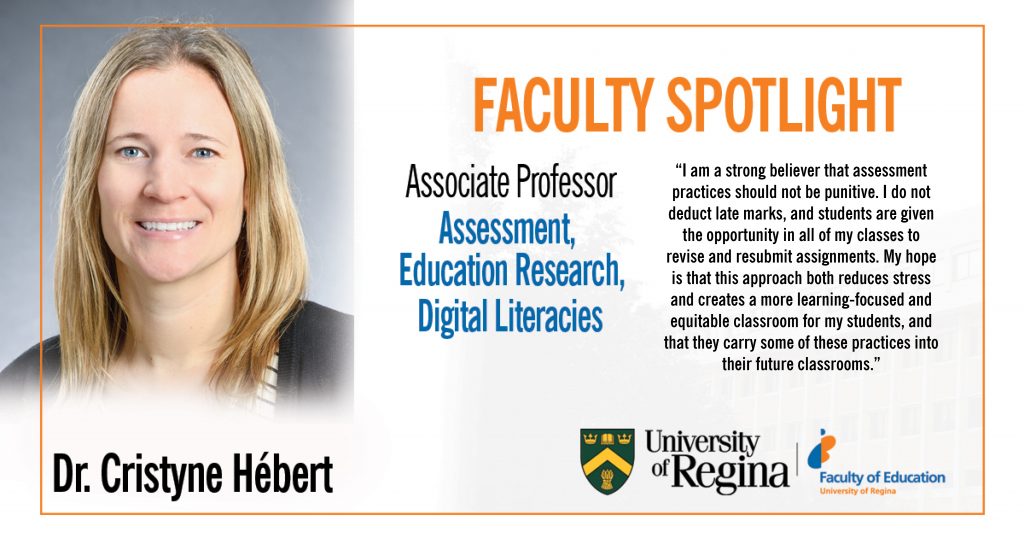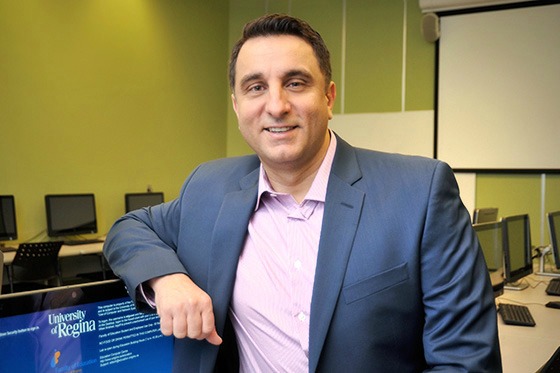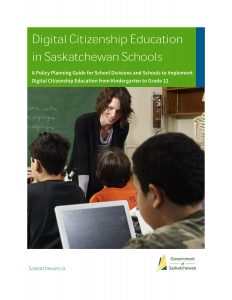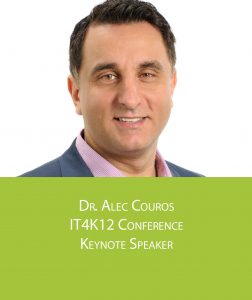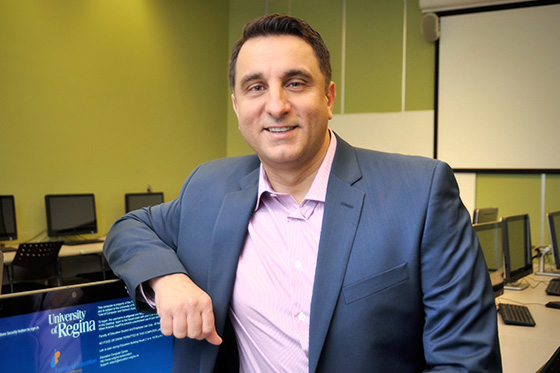Faculty Spotlight! We’re shining the spotlight on faculty members this fall so you can get to know some of the faces around the Faculty of Education.
Meet Dr. Cristyne Hébert, Associate Professor in the areas of assessment, education research, and digital literacies since July 2018.
Dr. Hébert is passionate about stress-free, learning-focused and equitable assessment. She says, “I am a strong believer that assessment practices should not be punitive. I do not deduct late marks, and students are given the opportunity in all of my classes to revise and resubmit assignments. My hope is that this approach both reduces stress and creates a more learning-focused and equitable classroom for my students, and that they carry some of these practices into their future classrooms.”
Why should students consider taking courses in assessment? Because, “it’s important that new teachers think critically about their assessment practices, moving away from some of those traditional approaches that we know don’t support all learners. Teacher education gives future teachers the space to really practice and try on something new,” says Dr. Hébert.
Digital literacies are another area of study that Dr. Hébert considers important for students: “We live in such a digitally mediated world. As educators, we need to know more than just what to do with technological tools. Developing a deep understanding of how media shapes lived experiences, and how power operates (often covertly) within systems to limit access and participation is of fundamental importance.”
Dr. Hébert’s current research involves both assessment and digital literacies. She recently (2020) received a SSHRC Insight Development Grant for her study on multimodal learning and assessment practices in the province. As part of a larger SEED grant-funded project, Dr. Hébert says, “I am currently analyzing provincial school divisions’ assessment policies, focusing on modernizing provincial assessment.” Dr. Hébert has a few other research projects underway, “working with both in-service and preservice teachers to look at how maker education might be enacted in the classroom.”
As advice for Education students, Dr. Hébert says, “Visit your professors during office hours. We set aside this time to meet with students to answer questions or talk through any course content or assignments, and are happy to see you there.”
If you are interested in taking a course with Dr. Hébert, she regularly teaches ECS401 (online): “This course takes a backward-design approach to assessment, narrowing in on curricular outcomes. Students gain experience with formative assessment, assessment tools, peer and self assessment, triangulation, and differentiation. My two favourite elements of the course are the assessment videos we watch, created by practicing teachers in the province, and the Rick Rant assignment, where students produce a three minute argumentative ‘paper.'” And she teaches EC&I 832 (online): “This course takes a critical look at digital citizenship and media literacies, focusing on how we might empower (rather than protect) young media users. Some themes we address include algorithms, technology and surveillance, memes and visual literacies, propaganda and fake news, and policing on line spaces. My favourite element of this course is the weekly collaborative work students produce, via Google Docs, applying their learning to analyze media.”
